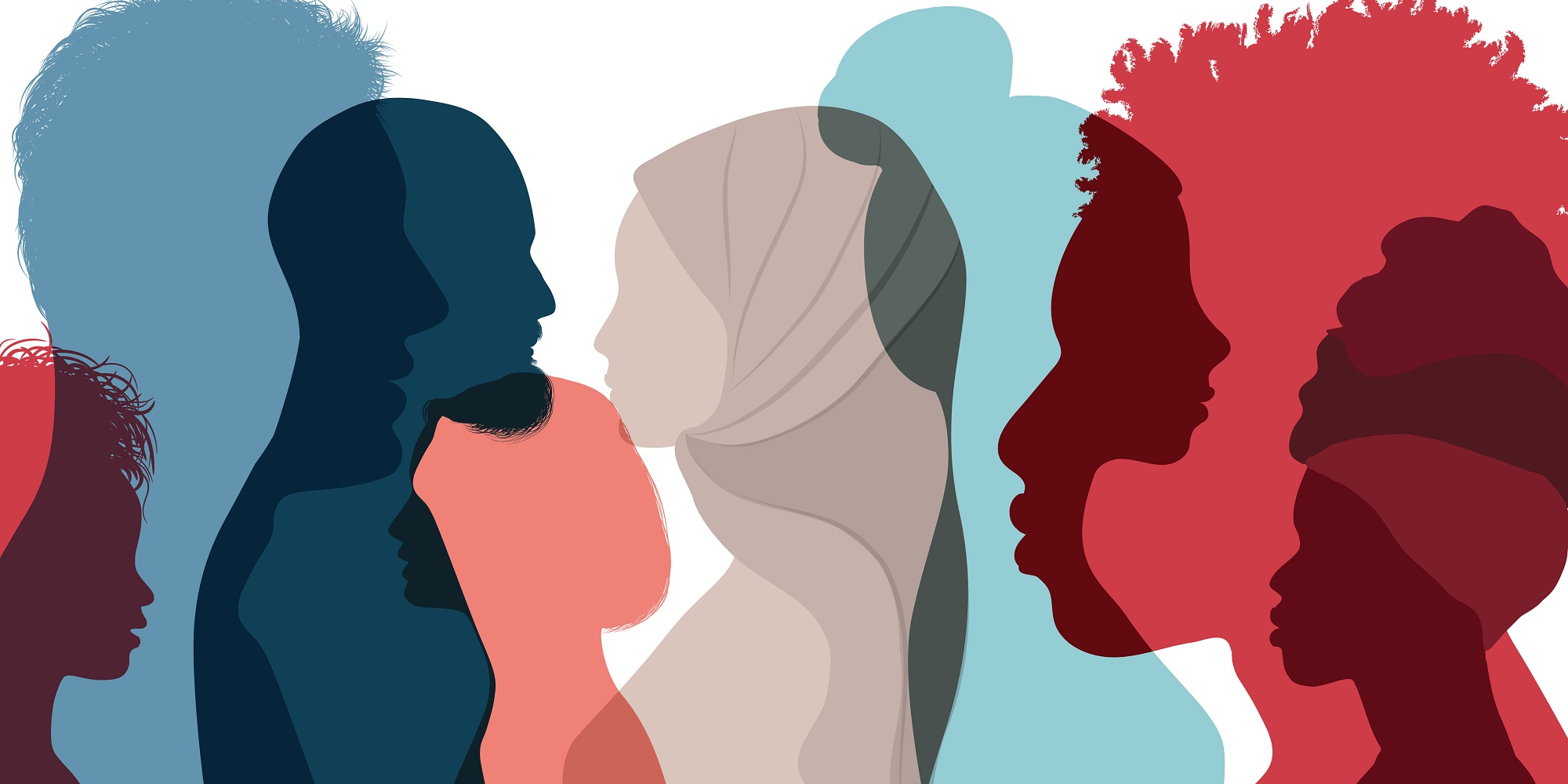Dear Men,
Come March every year, there’s a massive buzz around women’s rights, experiences, and achievements. Somehow, the events and celebrations for International Women’s Day are predominantly attended by women. The men who do attend often ask, “What can we do to help?”
Thank you for asking. We want you to be a part of the conversation and to do this together, with you. Here are some practical ideas.
1. Listen to understand. Most of us listen to respond. Yet, particularly when it involves experiences that differ from your own, it is important to listen to understand (and there is a lot of good advice out there on how to be a good listener). So, when women approach you with their experiences of gender-pay gaps, stereotypes against their marital or maternity status, or even the prejudices they face from families and societies, what you can do first is listen, and do so deeply. Do not tune out just because you are not accustomed to hearing about these topics or they don’t immediately pertain to you, or because they seem like issues that might be too difficult to fix.
Before you prescribe a solution, ask questions and listen some more.
Women usually work with odds stacked against them. If recruitment, remuneration, and career decisions were based on clear merit, we wouldn’t need to discuss gender inequality. Most women in positions of responsibility will say they give 150% to the job – because women must go the extra mile in order to prove that they’re good enough and can do as equally well as their male counterparts. Very often women try harder, but not necessarily for a better reward. So, clearly, our goal is not to outshine you as a gender: it’s to get to a level playing field.
For many of you, now forced to work from home because of the pandemic, you have had the opportunity to observe our lives and our unique challenges. Just as you now struggle to maintain a healthy work-life balance, many of us have struggled for decades, some of us enduring a lack of support both in the workplace and at home. Hopefully, you’ll be able to empathize a bit more now.
The tricky part is that no situation is alike – no woman’s home life and professional life is exactly the same. And this is why it is so important to listen to what the individual women in your lives are telling you – because there is no blanket solution, no way to normalize one set of women’s issues into being common. First, listen to understand – and then understand, too, that it is an act of much courage for a woman to speak up. Before you prescribe a solution, ask questions and listen some more: how do we feel, what we are doing to handle the situations, or what we would like you to do?
2. Work on your biases. Like most stereotypes, gender stereotypes are part of unconscious biases that start young – in our culture, in the stories we tell our kids and the dreams we plant in them, and in the expectations we set. Gender inequality is not always physically visible, so it might be easy to overlook the unseen restraints that hold women back from advancement in society and the workplace. Actively educate yourself about these biases – just as we all must tackle all of our ever-stealthy biases in whatever form they take. (None of us are free from bias – not even women against ourselves. It is never-ending work.)
A good starting point is to take the implicit association tests that are available online (a popular example is Harvard’s Project Implicit) to understand the nature of the bias. By now, research has uncovered several of these implicit biases: for example, women in power who speak more are judged worse off; humor from men in meetings is judged positively but negatively coming from women; female leaders find it more difficult to speak up in virtual meetings.
These kinds of biases are so subtle that we women are not immune to them. For example, the first time I saw the news of Denmark’s Prime Minister postponing their wedding due to the pandemic crisis, my ‘quick’ response was to assume it was the groom who made the decision even though the PM is female and the one who made the call.
Women do not need privileged treatment, but we do need support in a society that is quick to undermine our achievements.
Once you see the traps of bias against women, you can begin the work of catching yourself. Of course, no one can change a mindset all on their own; it is important to look to your community for support. So, tell a few people in your inner circle that you are working on your gender bias and give these trusted friends or colleagues the right to call you out when they see you giving in to bias. This is a well-known strategy for developing leadership skills; simply apply the same tactics to develop clearer thinking around your gender bias.
3. Be an advocate. When you see other people make judgments and decisions based on gender stereotypes, speak up. Adam Grant’s tweet flagging the Olympic ex-chief’s comments about working with women and Andy Murray quietly yet firmly correcting a journalist for ignoring the achievement of his female peers are great examples. It is you, as men, who can have a particular impact via an open and honest dialogue with other men (man to man, as you say) to improve the collective attitude. Being our advocate in such a way will gain you much more respect and admiration than any kind of singular individual achievement.
Women do not need privileged treatment, but we do need support in a society that is quick to undermine our achievements. When the Dr. Jill Biden controversy happened, I was reminded of a personal experience early on in my career when a male colleague asked me how I would like to be introduced at the start of an executive program that we were collaborating on. Would I like to be addressed – ‘Prof’ or ‘Dr’? In the moment, I interpreted this question as mere courtesy but later realized its power. There is now plenty of evidence that female scientists and scholars do not get the same respect as their male colleagues and that female educators receive disproportionately critical feedback.
4. Be a partner. Your advocacy needs to reach our homes too. You can make a big impact by consciously and actively promoting equality in the home. If you take on 50% of the childcare, housework, and mental load, we women can have time, focus, and energy to perform at our best and reach our career potential.
Furthermore, start fighting alongside us for changes in laws regarding the rights of working parents and childcare conditions. For example, the EU Commission’s proposal to balance parental leave taken by both parents is a step in the right direction, but it hasn’t been adopted in all of the EU countries. We see this point come up on women’s rights organizations’ agenda but the silence from men on the subject is deafening. As much as this is about women being able to give our careers the priority we choose, it is also about men being able to be the parent they want to be. This leads to a larger question about care: who takes the time to care for ageing parents, for the sick family members, for the disadvantaged. Not all nations or states step-in to unburden families and the task is predominantly assumed by women. It is now well known how Ruth Bader Ginsburg fought to get an unmarried man his rights to be eligible for tax deductions for expenses made for his dependent mother (movie recommendation: On the Basis of Sex). Just as we have fought for your rights, you men – as fathers, brothers, uncles, and partners – must step in with a strong, public, and vocal stand.
5. Don’t overhype gender. While it’s important to promote women, it’s important to also know how to strike a balance. A woman who is a scientist is a scientist, not a female scientist – unless of course you are adding a gender descriptor to all male scientists as well. Won’t it be great when we can have a panel that is made up of all women or a majority of women and not have to bill it as an “all-female” panel? A good example is how Biden made his press team all women but simply announced them, he didn’t point out the obvious fact that they are all women (although the press did.)
Adding women on your teams and boards, because you are pressured to have more gender diversity, is a great start. But don’t make it just a quota-filling exercise that gets just one or two women on the table and then things stop there. Our identities go beyond our gender, it is just one perspective we bring to the table.
Women’s Day, week, month comes around dutifully every year and female professionals get a flurry of invitations – to speak, to write, to be interviewed. We are often overwhelmed with the need to represent our gender. Not only do gender issues deserve to be highlighted year-round but so does the work of women that is not related to the work of women. As just one woman who is part of a complex and diverse gender, I can tell you that I feel the strain from always doing the heavy-lifting of speaking up about gender issues. But it is not something I can put down until I know there is someone else to pick it up, to help move us all as a society forward. Are you listening? Be our allies. Speak with us.
By Kriti Jain with input from Dima Yousuf, Ellen Jobling, Malgorzata Klein, and Kerry Parke
© IE Insights.






